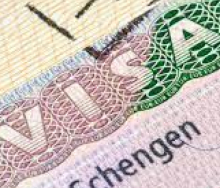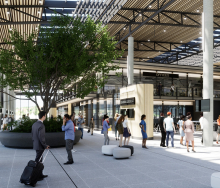Municipalities need to come to the party if South Africa is to see the kind of job creation it needs to grow the economy and mitigate poverty.
City authorities need to add a new category to their property classifications, that of hotels. And they ought to levy rates and utilities charges that cover their costs, but that don’t exploit hotels at the expense of job creation. This is the opinion of Marc Wachsberger, MD of The Capital Hotels and Apartments.
“South Africa’s hotel sector is never going to recover and create the jobs the country so desperately needs if municipalities continue to lump them in the same category as commercial property and heavy industry, subjecting hotels to rates and utilities costs that are triple those paid by residential properties,” he says.
What’s more, he calculates that if hotels were to be charged similar utilities costs to those levied on residential properties, these charges would be at the highest rate on the sliding scale for water and electricity costs, and yet it would mean that hotels would be paying less than half of what they currently do under their prevailing classification as commercial properties.
Wachsberger says the hotel industry was likely the worst affected by the pandemic. “While industry continued to manufacture, and retail continued to trade, the country’s hotels were forced to close. Even when they reopened, it was only to 25% or lower occupancy rates – and without the income boost from international tourists.” Yet, despite the clear distress of the industry, the hotel sector is still charged the same rates, taxes, and inflated utilities costs as those sectors that survived and even thrived through the pandemic.
Most hotels are charging the same rack rates that they were in 2019, even though Eskom’s rates have gone up significantly every year, and municipalities’ rates have increased annually too. Even though many hotels managed to stay open during the latter half of the pandemic, they did so on low occupancy rates and still paid their staff – operating at a loss. Many were not even able to do that, and closed their doors, and the job opportunities they had offered.
Those that would like to reopen and welcome their former employees back simply cannot, because the municipal rates and utilities costs are prohibitive. This means that hotel businesses that still owe municipalities money despite having closed their doors, will never reopen – and the municipalities are unlikely to ever see the money that is owed to them.
Wachsberger questions the logic of Airbnb properties and other types of accommodation in residential areas benefiting from residential rates and utilities prices. These do not have the potential to create hundreds of jobs as hotels do, he acknowledges.
“The hotel industry just wants to get on with its job and create jobs – the jobs that are going to kickstart the economy, grow the middle class and, in turn, grow those municipalities’ customer bases over time. They just need to make that investment into the hotel sector so that the whole economy can grow, to everyone’s benefit.”














